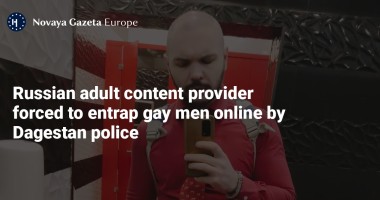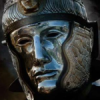Russian adult content provider forced to entrap gay men online by Dagestan police
A Russian male adult content provider was detained in the North Caucasus republic of Dagestan for the second time in two weeks on Wednesday after reportedly being forced to entrap gay men online by the republic’s police.
Matvey Volodin, a Moscow resident who performs under the name USSRboy, was detained by plain clothes police officers as he left a temporary detention centre where he had been held for 10 days, North Caucasus SOS, a Telegram crisis group devoted to helping LGBTQ+ people in the region, said.
A lawyer Volodin spoke with told North Caucasus SOS that Volodin had come to Dagestan in late May at the invitation of men who had contacted him online and told him they had rented him an apartment there.
However, they turned out to be officers from the Centre for Combating Extremism, a special unit within the Russian police, who after beating Volodin and confiscating his phone, forced him to assist them with entrapping gay men online, according to North Caucasus SOS. Using Volodin’s account to invite people to the apartment, the officers allegedly filmed Volodin’s sexual encounters with more than five men.



Add comment